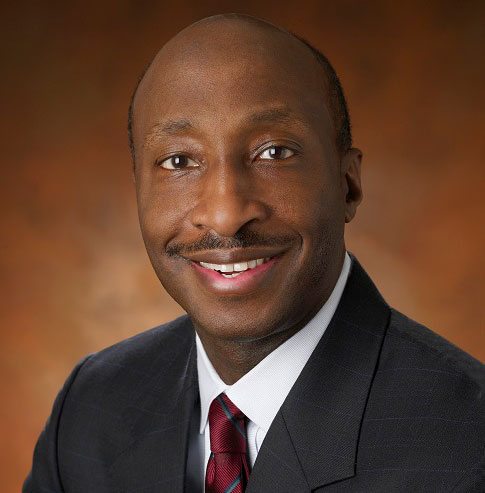
Yet again, the Trump administration displayed a stereotype of poor management and governance. This week, as one CEO after another resigned from his economic advisory council, President Trump disbanded both the Strategic and Policy Forum and the Manufacturing Jobs Initiative, isolating himself to prevent further embarrassment.
After the president failed to condemn the neo-Nazi protestors in Charlottesville last week and then claimed that “both sides” shared blame for the violent disruption, eight executives quit the advisory panels. “I feel a responsibility to take a stand against intolerance and extremism,” said Merck CEO Kenneth Frazier, who is African-American and was the first to go.
Blackstone’s Stephen A. Schwarzman, Under Armour’s Kevin Plank, Intel’s Brian Krzanich, Alliance for American Manufacturing’s Scott Paul, AFL-CIO’s Richard Trumka and Thea Lee, Campbell Soup’s Denise Morrison, and IBM’s Ginni Rometty all followed shortly. 3M’s Inge Thulin told the Los Angeles Times that he felt the council was “no longer an effective vehicle” to advocate for policies. Thulin said the councils don’t reflect the “values of ‘sustainability, diversity and inclusion.’”
But judging by all available evidence, the council was never an effective vehicle for ideas. It has only met a handful of times, and not at all for the past six months. The New York Times called presidential advisory councils “largely ceremonial.” Anat R. Admati, a professor of finance and economics at the Stanford Graduate School of Business called them “more symbolic than anything else.” But symbols are important, as we all know. It appears now that Trump has symbolically eschewed the business community en masse.
NPQ has reported over the last year that the public increasingly calls for-profit companies to account for their values, and not just the profits they return to their shareholders. CSR (Corporate Social Responsibility) is one part of this equation, though it can often mean “more branding and marketing than substance.” In the case of these advisory panels, as it became clearer that they were not a tool for encouraging social responsibility or even sensible decision-making, the presence of so many CEOs on them as a false symbol of Trump’s advice-seeking became less and less defensible.
Sign up for our free newsletters
Subscribe to NPQ's newsletters to have our top stories delivered directly to your inbox.
By signing up, you agree to our privacy policy and terms of use, and to receive messages from NPQ and our partners.
Naturally, part of this saga unfolded over Twitter. After Merck resigned, Trump tweeted, “For every CEO that drops out of the Manufacturing Council, I have many to take their place. Grandstanders should not have gone on. JOBS!” This is rather painfully ironic, considering that Trump is the grandstander in chief and that, in fact, the whole effort of the advisory panel may have been just for show. Later, when the panel disbanded, he shared a remarkably respectful message: “Rather than putting pressure on the businesspeople of the Manufacturing Council & Strategy & Policy Forum, I am ending both. Thank you all!”
It is unsure whether Trump disbanded both councils himself, or whether the Strategic and Policy Forum decided to dissolve independently and inform the President. A statement by the council reads, “Intolerance, racism and violence have absolutely no place in this country and are an affront to core American values. We believe the debate over forum participation has become a distraction from our well-intentioned and sincere desire to aid vital policy discussions on how to improve the lives of everyday Americans. As such, the president and we are disbanding the forum.”
A source described by the Wall Street Journal as “a person familiar with the matter” was quoted as saying, “After the press conference everything changed for everyone. It was clear from a value perspective we were not aligned.”
Of course, as many people have pointed out, the comments Trump made this week are consistent with the values he’s held since he announced his presidential run in 2015. “He has not changed,” said former Obama national security staffer Tommy Vietor. Were the members of the council aligned with these values before now? Did public pressure build up to distance themselves from Trump, until they could no longer ignore it? Other council members, such as Elon Musk and Bob Iger, resigned in protest of other policies like the travel ban and the withdrawal from the Paris agreement. Where do the CEOs who never took the step of resigning draw the line of policies and values they can’t support?
If the council was largely symbolic, then dissolving it sends a clear message about Trump’s willingness to involve expert advice in his decision making. If the point of the councils is to reassure Americans that the president is acting on the advice of well-informed stakeholders, then Trump apparently feels comfortable sending the message that he doesn’t care about buy-in, advice, or expertise in these matters. This is antithetical, not only to good policymaking and governance (as NPQ has often pointed out), but to the very principles on which democracy is founded.—Erin Rubin













